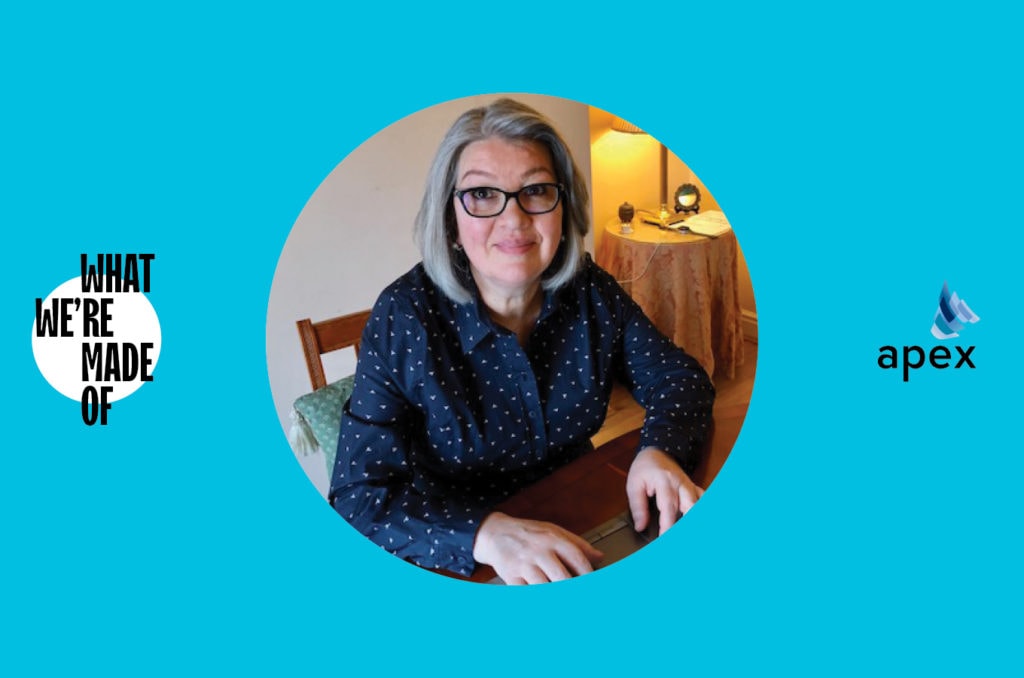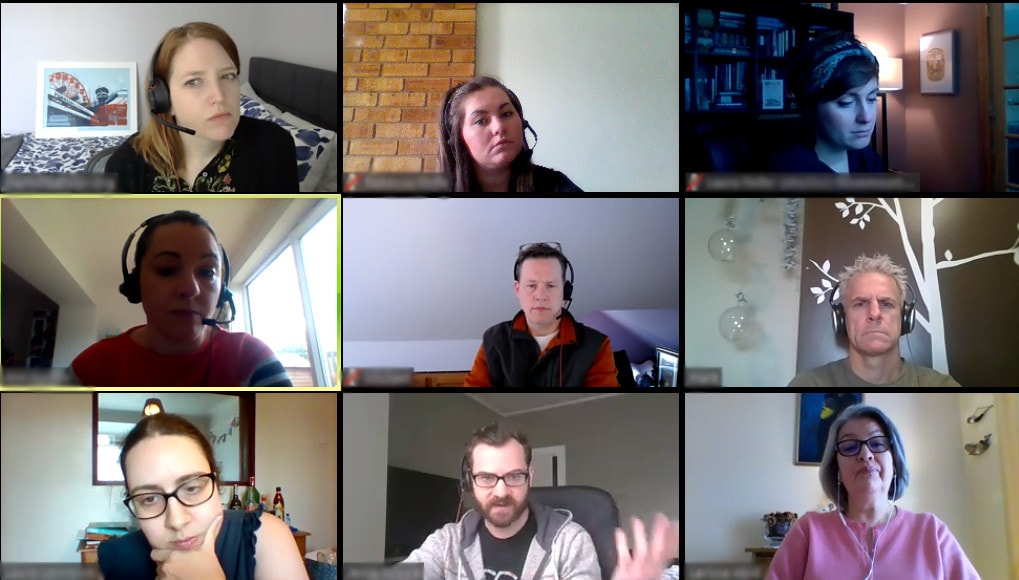What We’re Made Of: Larissa Abid, BBC World Service
Share

What We’re Made Of is a Q&A series that looks at how companies in the aviation industry are tackling challenges brought on by the COVID-19 pandemic. We’ve had to adapt to changes in where, when and how we work, but we are resilient. If you would like to share your experience, e-mail editor@apex.aero.
Larissa Abid
Senior Business Development Manager, BBC Radio International and North America/Caribbean Region, BBC World Service
Location: London
Day 12 of working from home
Date of writing: April 7
Are you in lockdown right now?
Yes – all non-broadcast-critical staff are working from home, with BBC broadcast teams working with minimum staff presence.
Where are you writing from?
I have based myself in the sitting room in my home in West London, on a sofa, looking out at the garden view across the room. For conference calls, and when my back starts aching, I move to the dining room table.
What’s your new office attire or go-to comforts at home during this time?
I usually dress in relaxed home attire, such as my panda jumper and comfortable matching trousers, but I change my clothes to a more presentable look for video calls to create that “virtual office” feel. I have to confess, the first video call in this current setup caught me unaware… everyone liked my panda jumper, but it was a lesson learned!
“Comedy and well-being content have picked up as various service providers seek suitable content to help balance grim news with lighter offerings for their customers.”
Have you or anyone you know been directly affected by COVID-19?
Thankfully no one close to me. Colleagues from our department and other BBC teams have had to self-isolate after returning to the UK from abroad or showing symptoms, but none are confirmed COVID-19. In the UK you are only tested if you are admitted to hospital with severe symptoms.
How are you passing time?
I’m listening to BBC audio dramas from BBC Radio 4- a real treat – and Popular Music Documentaries from BBC Radio 2 and 6, which are enlightening and entertaining. I’m also combining business and pleasure by taking this opportunity to dip into the BBC Radio International catalogues and watching Russian films, which I never have the time for normally.
Describe where your business was at the end of 2019. What were your goals/projections for 2020?
BBC Radio International had a successful 2019-2020 financial year. Our client list ranged from airlines to state and commercial broadcasters around the world. Classical music was the most requested genre, with BBC Proms concerts proving the most popular product followed closely by features such as Desert Island Discs, which was our most listened to program in flight. Dramas, readings, BBC in-concerts and our popular music documentaries were also high in demand. Our 2020 business plans included consolidation of the current client base and expansion into new distribution markets and platforms.

Can you share some specific challenges your business has faced as a result of the outbreak? How did you overcome them and how can the industry learn from your experiences?
The airline industry constitutes a substantial part of BBC Radio International’s business. Airlines around the world have been hit hard by travel restrictions, and are announcing cost-cutting measures including reduced in-flight entertainment. We therefore expect a direct impact on the BBC Radio International financial results next year. On the other hand, radio stations around the world have been very active in expressing interest in BBC and COVID-19-specific audio. Comedy and wellbeing content have picked up as various service providers seek suitable programming to help balance grim news with lighter offerings for their customers.
Can you give an example of generosity or kindness displayed by your company during this crisis?
In response to staff requests to support the national effort, the BBC has introduced three days of paid volunteering leave, which can be used to help external organizations or to support the BBC’s existing charitable and outreach work. For employees, the BBC has arranged access to free GP and mental health services over the phone for all staff.
What’s one thing you would do to better prepare your business to weather a similar storm in the future?
Based on the current experience, it would have been great to have access to an established in-house pool of people with the skillsets required for business critical teams to dip into at short notice, to ensure staff absence due to illness or self-isolation was more easily covered.
Read more about the coronavirus impact on the air travel industry, including APEX’s position on the matter, and subscribe to the APEX Daily Experience newsletter to stay up to date.



